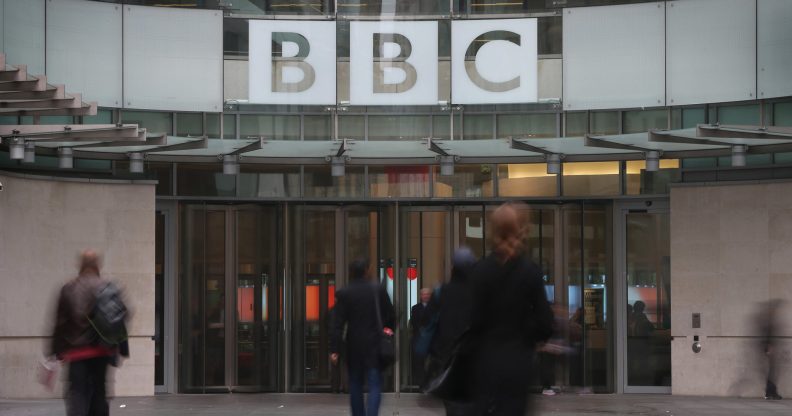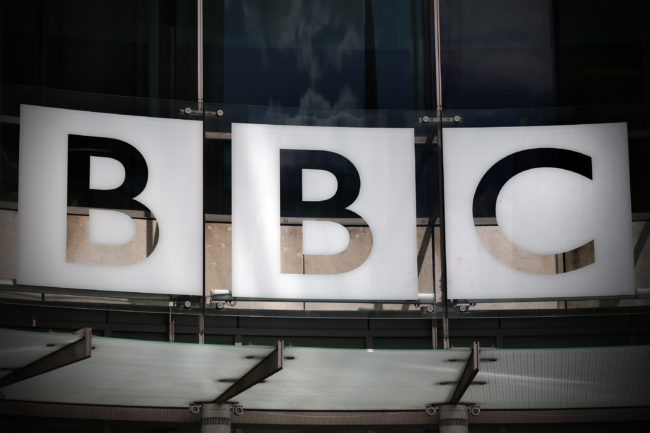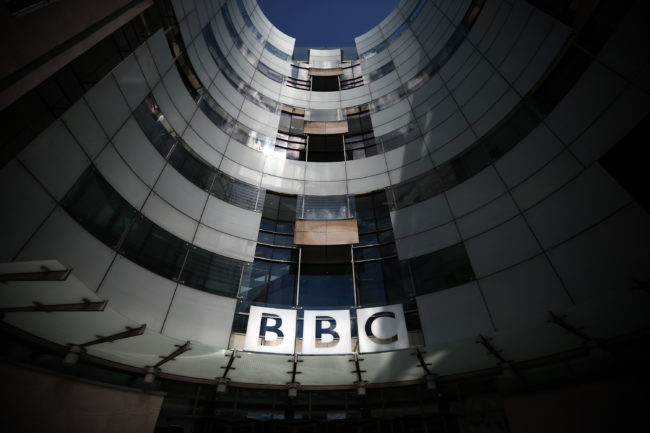BBC announces plans to improve working life for LGBT staff

The BBC Editorial Policy Department was today sent a letter by the UK’s 10 biggest LGBT+ groups who have united in support of the transgender community. (Peter Macdiarmid/Getty)
The BBC has announced plans to improve working life for its LGBT+ staff after a survey found that most say it is a good place to work, but more could be done.
The survey resulted in 10 new recommendations, which are already being implemented, with each one aiming to enhance the experience of the organisation’s LGBT+ employees.
For the survey, 300 LGBT+ staff members at the broadcaster were asked how they felt about their experiences of being LGBT+ and working for the BBC.

Carl Court/Getty
It found that 11 percent of employees, and 12 percent of leaders identify as LGBT+. Most reported positive experiences of working at the organisation, however the report—which also included input from LGBT+ charity Stonewall—also found that more needed to be done.
The new recommendations aim to improve working life for LGBT+ staff in a number of areas, and will do this by educating staff and leaders about what is important to the LGBT+ community, increasing the prominence of LGBT+ staff, and empowering staff to be open about their sexual and gender identity.
The report has recommended that the BBC build a network of straight allies who can promote the LGBT+ community at the BBC, organise more internal campaigns for the community, and offer guidance to managers on supporting transgender staff, particularly while they are transitioning.
Co-chairs of the BBC’s Pride Network, Karen Millington and Matt Weaver, said that each of the recommendations had the potential to help make the BBC a more inclusive workplace.

Carl Court/Getty
“Although we hope the recommendations will positively impact everyone across the LGBTQ+ spectrum, we are particularly excited about the proposal for providing better support for our transgender colleagues and improving visibility with role models throughout the business,” they said.
This is not the first review of its kind at the BBC. A number of recent projects have also looked at key areas where there is a need for greater diversity, which looked at gender, ethnicity, disability and socio-economic status.
The BBC has already published the action they plan to take in supporting women and employees from BAME backgrounds, and will soon publish further reports on socio-economic diversity and disability.

